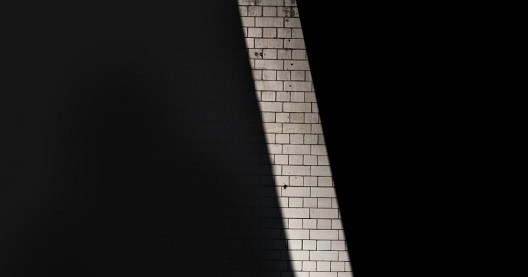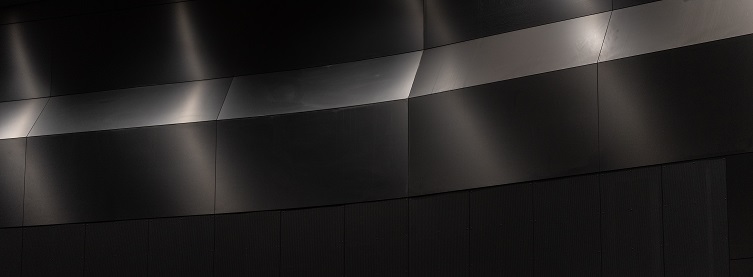OSLO - Norway
Sustainable Procurement Targets



Latest Procurement Achievements
Sustainable Procurement in Oslo
Oslo, the capital of Norway, is a hub of banking, shipping and trade in the country. It has a population of nearly 700,000 inhabitants. The vision for Oslo is a green, inclusive and smart city. In 2019, City of Oslo was awarded the title of European Green Capital.
As a member of the UN Global Compact, a voluntary initiative based on universal sustainability principles, the City of Oslo is committed to the Ten Principles concerning human rights, labour, environment and anti-corruption. The City of Oslo endeavours to enact and promote those principles in the city management and communicates publicly on the progress and the achievements. We communicate publicly about our efforts here.
Oslo aims at being a leader in using public procurement as a strategic tool to achieve sustainability and climate goals. The city’s Procurement Strategy from 2017 shows a reinforced commitment to sustainable procurement.
The Procurement Strategy has four sub-targets based on our vision for Oslo. The Oslo Municipality's procurements shall:
• effectively contribute to providing citizens and businesses with solutions and services in line with current and future needs
• make Oslo greener
• make Oslo more socially inclusive and fair
• make Oslo a smarter and more innovative city
Oslo’s Climate Strategy outlines the roadmap for how the green transformation should be implemented in order to achieve the city’s climate goals, while developing and upgrading an urban community. One remarkable milestone is the implementation of the Climate Budget. Oslo is the first city worldwide to adopt a Climate Budget following the Paris Agreement. Oslo`s Climate Budget is an integrated part of the Financial Budget. It includes several measures quantifying emission cuts needed by 2030.
In addition, Oslo’s Strategy for a sustainable and circular consumption describes how the City of Oslo will facilitate sustainable and reduced material consumption in order to follow up the ambition in the Procurement Strategy. Sustainable consumption takes into account both the environment, social aspects and economic sustainability. This means reducing the environmental impact of consumption, including materials, resources and energy use, and avoiding the use of vulnerable resources. Important focus areas are food, plastics, electronics, textiles and building and construction materials.
Transport
The number of people travelling by public transport, bicycle and on foot in Oslo is rising – at the expense of car traffic. Oslo has the world's highest proportion of electric cars and is called the “EV Capital of the World”. Local and national authorities have made buying and owning electric vehicles very attractive and have thus boosted the private market for zero emission vehicles. Today, 60% of all new passenger cars sold in Oslo are electric.
The City of Oslo promotes suppliers that use zero emission vehicles. Environmental criteria are used in procurements that involve an element of transportation. The criteria apply to vehicles delivering goods, as well as those used by service providers in carrying out those services. From 2025, zero emission and biogas will be stipulated as a minimum requirement in all tenders where transport is needed.
From 2016 to 2019, Oslo participated in the BuyZET project together with Copenhagen and Rotterdam. Co-ordinated by ICLEI, the project aimed to understand and optimize the impact of public procurement activities on transport patterns in cities – and to find innovative and sustainable delivery solutions for goods and services. BuyZET was of great importance for the development of guidance, methods and environmental requirements that now apply.
Oslo has also come a long way with regard to sustainable public transportation, with an increasing share of zero emission buses. In addition to zero emission technologies, biogas is an important energy source for buses and other heavy-duty vehicles such as waste trucks in the city. Biogas used in Oslo is produced locally in the region from food waste and sewage.
Energy & Buildings
The City of Oslo has, through public procurement, established the first pilot of a construction site with only zero emission machinery. To initiate market development, there a broad dialogue has been organised with stakeholders aiming at developing a market for zero emission construction vehicles and machinery. The pilot has been a success, showing zero emission construction to be possible, with relatively low additional costs.
By 2025, all construction sites commissioned by the city of Oslo are to be zero emission. The city has gained experience form demanding fossil free construction over the past years, and has adopted fossil free as a minimum requirement in all construction procurements. In 2019, the city also adopted standardized award criteria to promote zero emission machinery.
Reducing indirect emissions related to building materials is also an important focus area for the City of Oslo. Several pilots are now testing requirements for recycled as well as low carbon materials. The City Council has established a quantitative target for reducing climate footprint related to the use of materials in buildings by 30%.
Sustainable and Circular Consumption
Oslo is continuously improving its circular systems in order to make the most out of our resources. The City Council wishes to promote innovation and new jobs in the circular economy and adopted the “Thematic Plan for Circular Economy towards 2030”. The plan outlines the importance of transitioning to a circular economy with key objectives being waste reduction, resource efficiency and the promotion of sustainable production and consumption patterns. Furthermore, the plan highlights the role of strategic procurement in this transition.
In recent years, the City has increased its focus on facilitating more circular consumption patterns, in particular through its central framework agreements. Examples of requirements and services within existing or new central framework agreements are:
- A reuse platform for furniture and inventory articles
- Ability to purchase used furniture
- Repair- and redesign services for furniture
- Transport and storage services for furniture and inventory articles
- 80% of furniture within the corporate-wide framework agreements contain an ecolabel.
- Stricter requirements for the lifespan, performance and warranty period of ICT-products such as mobile phones, PCs and tablets
- Takeback schemes for the reuse of ICT-products such as mobile phones, PCs and tablets.
- Inclusion of reuse schemes for toners used on multifunction machines
- Inclusion of modular products, such as the Fairphone.
- Fixed prices for repairs of screens for PCs and tablets
- All PCs, PC screens and multifunction machines contain a type 1 ecolabel.
Sustainable Food
In recent years, Oslo has worked systematically to organize policies and work with sustainable and healthy food. In September 2023, an action plan was approved with the purpose of achieving the city council’s ambitions for sustainable and healthy food. The action plan presents strategic priorities in the municipality’s food policy with concrete measures to promote sustainable and healthy food in the City of Oslo.
The action plan has four targets:
1: halve meat consumption and increase the proportion of plant-based food
2: increase competence in sustainable, healthy and good plant-based food
3: halve food waste by 2030
4: contribute to developing the supplier market for sustainable food and emphasize
animal welfare and working conditions through procurement and consumption of food
and drink
The responsibility for implementing sustainable and healthy food in Oslo is placed with the Department of Finance. The executive body is the Agency for Improvement and Development.
New city wide framework agreements on food
The city is continuously working on how to develop portfolio of framework agreements, as well as assortment management, to make sustainable alternatives a simple and affordable choice. The suppliers must deliver sustainable, plant-based and seasonal food. From December 2023, a new catering agreement for the administration and the politicians in the city of Oslo. The agreement adheres to the municipality's guidelines on vegetarian food, ecology and Fairtrade-certified products.
Social dumping and labour crime
The City of Oslo continues to be at the forefront in fighting social dumping, work related crime, and ensuring decent labour conditions for workers in our domestic and global supply chains. More than 7 years have passed since the city adopted and introduced the first version of the “Oslo-model”. In 2023 a new version of the model was introduced. The model is a comprehensive framework of measures and requirements to help combat social dumping, and to promote decent working conditions, using public procurement as a strategic tool. Regarding domestic supply chains, the model compiles 22 requirements, and applies in particular to high-risk industries such as construction and cleaning services.
Social and ethical procurement
The City of Oslo is committed to promoting international human rights and ensuring that working conditions throughout the supply chain meet the standards set by Fundamental Human Rights, the ILO Core Conventions, and relevant national labor regulations in producing countries. Recognizing the high risk of human and labor rights violations in many of its procurements, the city incorporates social requirements in the majority of these procurements, including social selection criteria and standard contract clauses.
The revised Oslo Model, adopted in May 2023, includes comprehensive instructions and standard requirements for due diligence in responsible business conduct. This updated model emphasizes a systematic approach to due diligence, ensuring that suppliers have robust management systems for labor and human rights issues. This involves identifying, preventing, mitigating, and accounting for potential adverse impacts on human rights and labor conditions.
At the contract management stage, we regularly follow up through desktop research, follow-up meetings, documentation reviews, and audits. We also collaborate with other public buyers and experts to address systematic challenges in prioritized supply chains. Based on risk assessments, our prioritized categories in citywide framework agreements include ICT equipment (mobiles, tablets, and PCs), batteries (for electric vehicles and ICT), food (fruits, vegetables, raw materials), medical equipment (disposable gloves), and textiles (workwear). This prioritization entails closer contract follow-up, collaboration with external experts, and the development of criteria to address systematic challenges.
For instance, the City has set additional criteria for suppliers to engage in social dialogue at production sites in the textile industry and to reduce the risk of conflict minerals in agreements for PCs and tablets.
Oslo is a “Fairtrade Capital” and one of the objectives is to increase the share of Fairtrade labelled goods i our public procurement. 80% of the bananas purchased by the City Of Oslo in 2024 were labelled Fairtrade and ecological. 70 % of the purchased coffee had Fairtrade or another ethical trade mark. Due to the systematic approach and effort in implementing ethical and fair trade in public procurement, The City of Oslo was awarded as the “Fairtrade City of the Year” by Fairtrade Norway.
Through our membership in Ethical Trade Norway, the City of Oslo demonstrates a strengthened commitment to ethical trade through procurement. Our annual member report to Ethical Trade Norway for 2023 is available in the Report Database at www.etiskhandel.no
Sustainability Targets
“Oslo municipality shall carry out appropriate and cost-efficient procurement processes - delivering good and socially responsible solutions both in the short and the long term.”


























